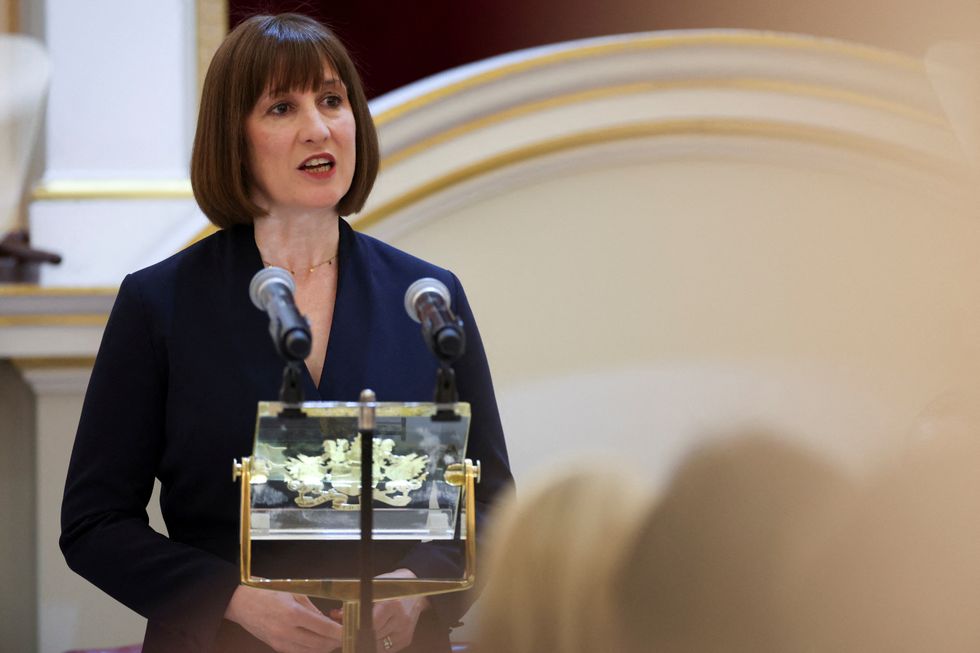'Relentless bad news briefings and tax rise threats, it should not surprise the Chancellor growth bombed' - Sir John Redwood
Sir John Redwood was Conservative MP for Wokingham in Berkshire from 1987 to 2024
Don't Miss
Most Read
Trending on GB News
The first three months of the new government saw growth tumble from 0.7 per cent and 0.5 per cent in the first two quarters of the year to a tiny 0.1 per cent.
If you adjust for the big increase in migrants into the country, GDP per head actually fell 0.1 per cent. This was not what the government said it would do. In the first half of the year the UK was leading the G7 growth table, but has now plunged to the bottom.
I have praised them for wanting the UK to sustain its growth as the fastest in the G7, something it has not been able to do so far this century.
The US has rushed ahead of the UK and the other main EU economies since 2000.
It has done so based on a big increase in oil and gas production, much lower energy prices, great technology companies extending their global lead and lower taxes.
If the UK wishes to catch up it needs big changes to energy, technology, and taxation to match or improve on the US offer.
It should not have come as a surprise to the Chancellor that growth bombed. The relentless bad news briefings and the threats of so many tax rises lowered confidence.
The eventual budget policies of paying the public sector more without productivity wins, and taxing the private sector more to employ people was never going to boost confidence or speed economic gains.
Hospitality, shops and leisure businesses are hard hit by higher National Insurance, and farmers by the Inheritance tax attack on their family farms. The talk is of closures, and people doing less and investing less.
The Chancellor had another go at a growth strategy after the budget drove down the pound against the dollar and drove up longer term mortgage and interest rates.
She told the City audience at the Mansion House that there will be an investment bonanza, as government, City and business work together to finance and build many more projects, homes, and green energy plants.
The big idea is to harness the pension funds money, where UK funds these days invest very little in UK business. She thinks if she gets the Council pension funds to merge their investment funds they could take more risk and buy into infrastructure projects and private equity start ups. So will this work?

Rachel Reeves making a speech at Mansion House
PA
The truth is, this was the last government's policy.
The Councils have already set up eight large investment pools to improve the way they invest. Each Council is still responsible for its own pension payments and appoints Trustees to control investment policy and appoint managers.
All pension trustees in the UK are trained to put much of a fund's money into government bonds, not riskier shares. None of this has yet been changed by the Chancellor's announcements.
It looks likely the new government will have as much difficulty upping the investment into UK projects and riskier businesses as the old one had.The government has damaged its own growth policy.
The government's inheritance tax hit on farmers hurts family farms and our ability to grow more of our own food. Its energy policy, far from cutting our bills, has so far seen an approved price rise and we may be facing another one.
LATEST MEMBERSHIP OPINION:
- 'Labour's decision to cut defence spending is a sign of weakness and there will be consequences from it'
- 'Whichever way you cut it, Ukraine's use of UK missiles is seen as an escalation in the war'
- Labour has damaged our country's growth - and it should come as no surprise to the Chancellor - John Redwood
Meanwhile our industrial energy costs three times as much as in the US.
The government has promised us faster streamlined planning, but so far the same old projects remain bogged down in years of debate about whether to go ahead, amidst a welter of expensive surveys and consultants reports on what might go wrong.
HS2 ended up spending £100million on bat protection on one small section of the line.
I still love the ideas of faster growth and better infrastructure from private investment.
I just don't see the streamlined laws and the better policies to deliver so many new good projects, let alone willing money to back them when they arrive.
That is going to require more fundamental reform of planning, environmental regulation, and the law governing trustees duties and the management of pension funds.
To be suitable investments for future pensions we need profitable well run stable investments. Instead we have dear, delayed projects with government s all too willing to impose windfall taxes and new requirements on them once they have been committed.








